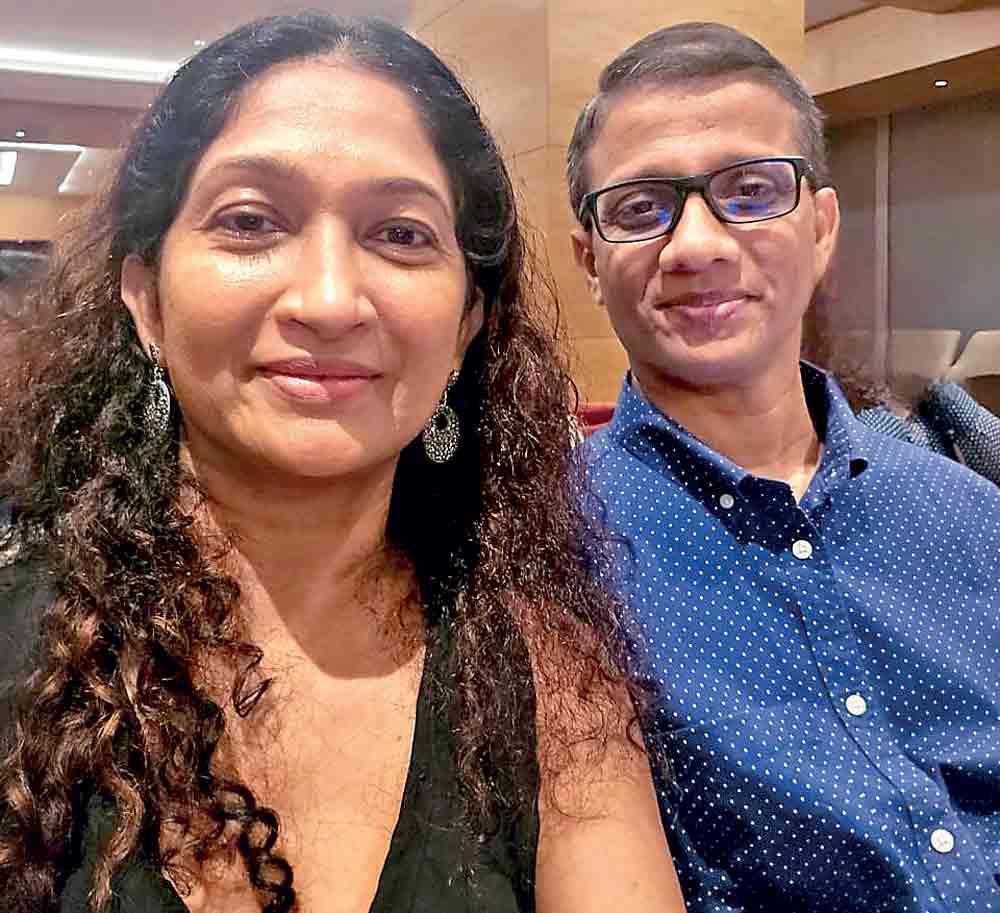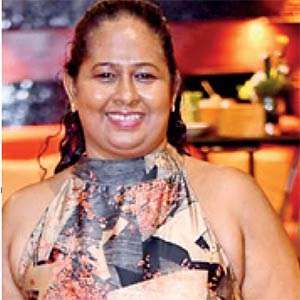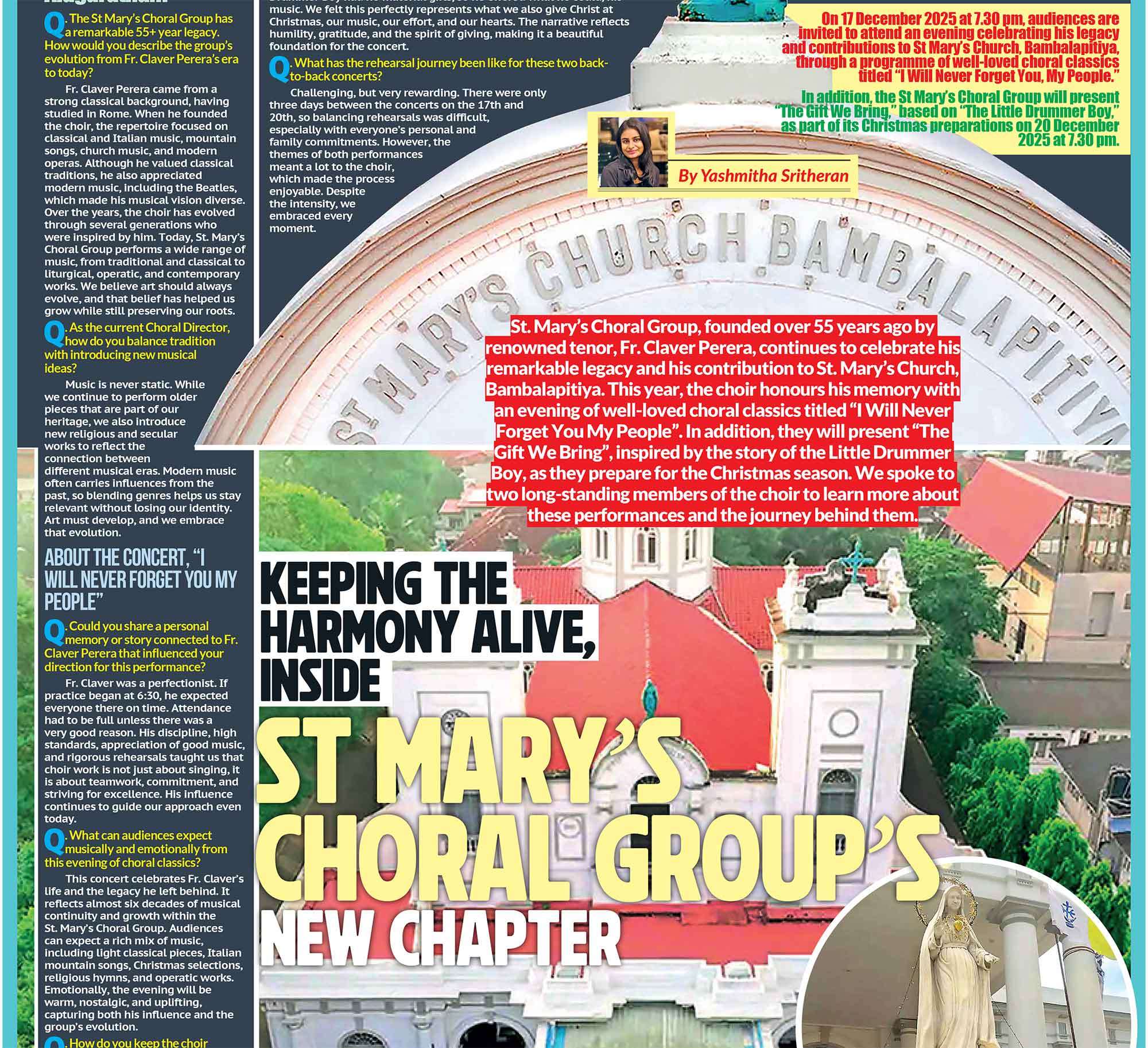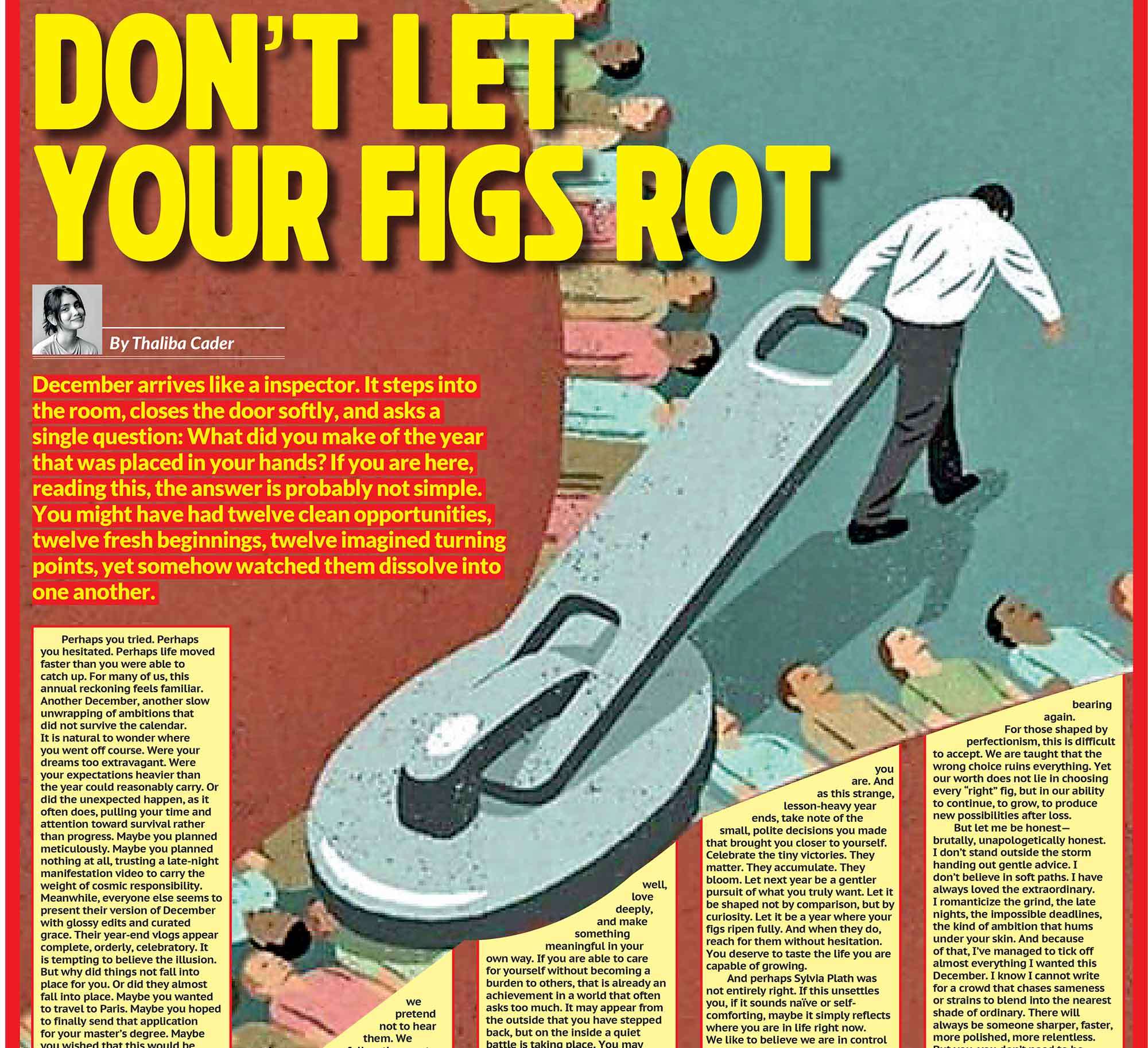SENIOR LECTURER | SURGERY | FACULTY OF MEDICINE, GENERAL SIR JOHN KOTELAWALA DEFENSE UNIVERSITY | CONSULTANT OTORHINOLARYNGOLOGIST AND HEAD AND NECK SURGEON, UNIVERSITY HOSPITAL KDU
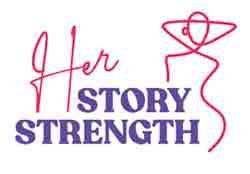 Medicine has long been recognized as a profession that demands intellect, discipline, and compassion. Yet within that demanding sphere, few have managed to harmonize clinical excellence, academic contribution, and creative expression as gracefully as Dr. Vasanthika Thuduvage. From her early education at Taxila College in Horana to her current position as Senior Lecturer and Consultant Otorhinolaryngologist and Head and Neck Surgeon at the University Hospital KDU, her journey has been one of purpose, resilience, and service. Balancing surgery, teaching, research, and motherhood, she has become a role model for young women pursuing medicine in Sri Lanka. Beyond her professional accomplishments, Dr. Thuduvage is also a poet and lyricist, adding an artistic dimension to her scientific career. In this conversation, she reflects on her motivations, challenges, and the milestones that shaped her life in medicine, offering insight into what it truly means to lead with empathy, determination, and balance.
Medicine has long been recognized as a profession that demands intellect, discipline, and compassion. Yet within that demanding sphere, few have managed to harmonize clinical excellence, academic contribution, and creative expression as gracefully as Dr. Vasanthika Thuduvage. From her early education at Taxila College in Horana to her current position as Senior Lecturer and Consultant Otorhinolaryngologist and Head and Neck Surgeon at the University Hospital KDU, her journey has been one of purpose, resilience, and service. Balancing surgery, teaching, research, and motherhood, she has become a role model for young women pursuing medicine in Sri Lanka. Beyond her professional accomplishments, Dr. Thuduvage is also a poet and lyricist, adding an artistic dimension to her scientific career. In this conversation, she reflects on her motivations, challenges, and the milestones that shaped her life in medicine, offering insight into what it truly means to lead with empathy, determination, and balance.
Q What inspired you to pursue a career in medicine, and later to specialize in the challenging field of Otorhinolaryngology and Head and Neck Surgery?
From childhood, I dreamed of becoming a doctor, guided by a desire to combine empathy with competence. During my surgical training, I witnessed the dedication, skill, and teamwork of surgeons, which inspired me profoundly. Surgery captivated me not only for its technical precision but also for the courage, composure, and responsibility it demands. When choosing a specialty, I considered both my personal responsibilities as a wife and future mother and my natural strengths. Otorhinolaryngology offered the ideal balance between surgical skill, patient interaction, and a manageable lifestyle. It suited my abilities and remains a deeply fulfilling choice.
Q Coming from Taxila College in Horana to becoming a Senior Lecturer and Consultant Surgeon, what were some defining moments that shaped your journey?
Teaching has always been one of my greatest passions. After qualifying as a Consultant ENT Surgeon, I began my professional journey at Vavuniya General Hospital under the Ministry of Health. That period was both challenging and rewarding, as it helped me strengthen my clinical skills and confidence as an independent practitioner. However, a major turning point came when I was offered the opportunity to join the Faculty of Medicine at the General Sir John Kotelawala Defence University. The position appealed to my love for teaching and my desire to contribute to academic medicine. Accepting that offer marked a defining moment in my life. Transitioning from a purely clinical role to one that also involved teaching and mentoring young medical students broadened my horizons. It opened new avenues of growth, allowed me to share knowledge, and helped shape the next generation of doctors.
Q As a clinician, academic, and researcher, how do you balance these three demanding roles?
Balancing clinical practice, teaching, and research is demanding but deeply rewarding. As a surgeon, I take the responsibility for each patient’s health very seriously, requiring focus, precision, and accountability. In my academic role as Senior Lecturer, I conduct lectures, examine students, and supervise research projects, which allows me to stay updated while nurturing curiosity and confidence in future doctors. Research remains integral to my growth, enabling exploration of new ideas and advancement of medical knowledge. By understanding my strengths and weaknesses, I ensure these roles complement one another, maintaining harmony so each enhances the other.
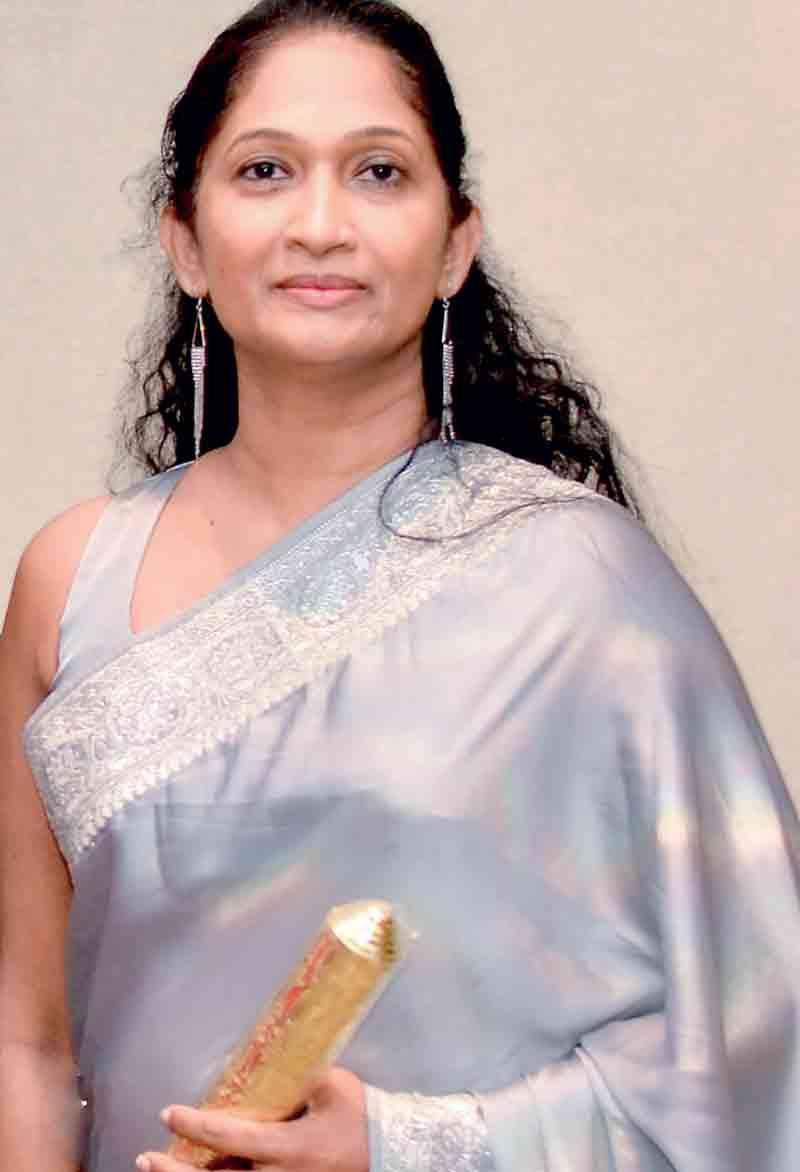
Q You have introduced several innovative programs at KDU, such as the Tracheostomy Care Program and the ENT Emergency Management Workshop. How have these initiatives impacted medical education and patient care?
Observing gaps in patient care inspired me to develop targeted training programs such as the Tracheostomy Care Program and ENT Emergency Management Workshop. These initiatives train medical officers, nurses, and students to manage delicate procedures and emergencies confidently and safely. By enhancing technical skills and practical knowledge, these programs improve patient outcomes and reduce complications. Beyond clinical skills, they foster teamwork, accountability, and effective collaboration among healthcare providers. Over the years, these initiatives have had a lasting impact on medical education and patient care, ensuring that healthcare professionals are better equipped to respond to both routine and emergency clinical situations.
Q Surgery is traditionally viewed as a male-dominated field. What challenges did you face as a woman surgeon, and how did you overcome them?
I have never believed that surgery is unsuitable for women. The main challenge lies in balancing professional responsibilities with family life. As a mother of three, night calls and emergency duties can be particularly demanding, requiring careful management to meet both clinical and family needs. Support from my family has been essential, and I have been fortunate to work with colleagues who treat me as an equal. Confidence in my abilities allows me to overcome challenges. With dedication, organization, and self-belief, gender becomes irrelevant, and it is possible to excel in surgery while maintaining personal responsibilities.
Q You mentor many young women in medicine. What advice do you offer those striving to balance their personal lives with demanding careers?
A medical career is both rewarding and demanding. It requires immense dedication because we are dealing with human lives, and our patients place their utmost trust in us. While fulfilling this professional duty, we must also remember that personal well-being and family life are equally important. Time management is the key to maintaining balance. I always advise young doctors to plan their days thoughtfully and to make space for their families and personal interests. Having a hobby is also essential. In my case, writing and reading provide the relaxation and mental clarity I need to perform well in my professional life.
Ultimately, balance does not mean dividing time equally but giving the right attention to the right thing at the right moment. One must care for patients responsibly while also caring for oneself and one’s family.
Q As Chairperson of the Research Committee at the College of Otorhinolaryngologists, how do you foster a stronger research culture among young doctors?
As Chairperson of the Research Committee, my goal has been to cultivate a strong research culture among young ENT specialists. Research drives medical progress, and I wanted to create opportunities for curiosity and innovation to flourish. Initiatives such as “Saturday Night ENT Talk” provide an informal yet stimulating platform to share ideas, discuss cases, and explore new research topics, encouraging collaboration across institutions. We also introduced a research grant program to support promising projects. These efforts have inspired enthusiasm and participation among young doctors. I firmly believe that fostering research is essential for advancing healthcare and national development.
Q Beyond your medical career, you have published a Sinhala poetry collection titled Adare Sagawapu Then. How does writing complement your life as a surgeon?
Writing and reading have always been my favourite hobbies. Even with a busy schedule, I take every opportunity to write poetry, sometimes using my mobile phone whenever inspiration strikes. Writing offers me mental relaxation and emotional balance, providing a peaceful escape from the intensity and stress of surgery. Publishing my first poetry collection, Adare Sagawapu Then, was a dream fulfilled, giving me personal satisfaction beyond my professional life. I have also written song lyrics, one of which has been published. Creativity enriches my perspective and reminds me that a doctor can also be an artist at heart.
Q What changes would you like to see in Sri Lanka’s medical education system to better prepare future generations of doctors?
Sri Lanka has always produced competent and well-respected doctors who perform exceptionally both locally and internationally. However, I believe there is room for improvement in several key areas. Communication skills should be given more emphasis in medical training. Doctors must be able to connect effectively with their patients and colleagues, as good communication is an essential part of healing. In addition, future medical professionals must be equipped with strong knowledge of technology, research, and innovation. The world is moving rapidly toward digital transformation, and our education system must evolve accordingly. Encouraging critical thinking, fostering creativity, and integrating technology into learning will ensure that our doctors remain leaders in global healthcare.
Q Finally, what message would you like to share with young Sri Lankan women who aspire to lead in medicine or any other field?
My message is that gender should never be seen as a limitation or an advantage. Success comes from hard work, integrity, and self-belief. I encourage young women to identify their strengths and weaknesses and to plan their careers with clarity and purpose.
Do your work with honesty and confidence and never be afraid of challenges. Every obstacle can be turned into an opportunity if you approach it with determination. Define your own goals, stay true to your values, and strive to write your own success story. Leadership is not about position or power; it is about dedication, resilience, and the courage to make a difference.

- Coffee or tea? Coffee
- Surgery or research, what excites you more? Surgery
- The most inspiring woman in your life? Dr. Anula Wijesundera
- A book or movie that changed your perspective? The Reader
- The best advice you’ve ever received? “Everything that happens is for your good.”
- One quality every surgeon must have? Patience
- If not a doctor, what would you have become? A writer
- One thing your students would be surprised to know about you? That I am a lyricist and song producer
- Three words that describe Dr. Vasanthika Thuduvage? Kind, responsible, and friendly
- The best part of being a woman in surgery? Being able to understand patients through the perspectives of a wife, mother, daughter, and sister


